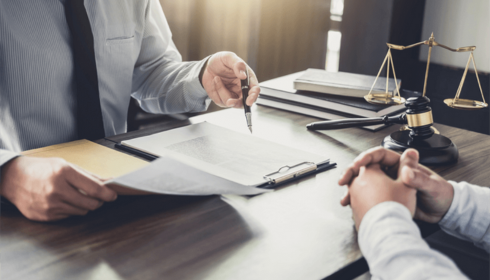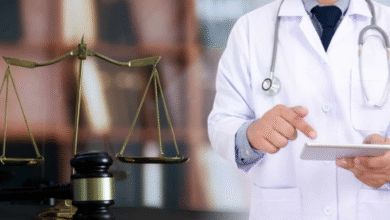The Subtle Art of Finding the Right Expert Witness

There’s something uniquely challenging about the courtroom. It isn’t just the stress of deadlines, the stacks of documents, or the back-and-forth between attorneys. It’s that critical moment when everything hinges on clarity, credibility, and precision. And often, those moments rest on the shoulders of an expert witness. Choosing the right one isn’t as simple as flipping through a directory—it’s closer to matchmaking, where expertise, communication skills, and trust must align perfectly.
Why Expertise Matters More Than Credentials Alone
When law firms bring in specialists, they’re not simply shopping for degrees and certifications. They’re looking for someone who can explain highly complex matters in plain language—someone who can keep a jury’s attention without oversimplifying. That’s where financial expert witness services come into play. It’s not just about crunching numbers; it’s about making those numbers tell a story. Whether it’s a corporate fraud case, divorce involving asset valuation, or shareholder disputes, the expert must translate financial chaos into a narrative the court can follow.
The First Layer: Screening for Suitability
Not every brilliant professional is cut out for the courtroom. Some people can run entire departments but freeze under cross-examination. That’s why firms are increasingly leaning on expert witness screening services. These services act as a filter, making sure the person being put forward doesn’t just know their subject but also knows how to withstand the pressure of litigation. It’s a bit like testing a musician—not just to see if they can read sheet music but to confirm they can perform in front of an audience that might not always clap.
Searching Without Drowning
The legal world is notoriously fast-paced. When deadlines loom, attorneys don’t have the luxury of sifting through hundreds of potential experts. This is where structured searches become invaluable. Using tools designed for expert witness search for law firms, attorneys can cut through the noise and find a short list of candidates who actually fit the bill. The right platforms consider not only credentials but also past case experience, testimonials, and areas of specialization—things that Google alone won’t hand over neatly.
Communication Is the Silent Deal-Breaker
I once sat through a deposition where the expert clearly had the right background—decades in the field, countless publications, the whole package. But when the questioning began, he rambled, overcomplicated answers, and left everyone more confused than before. That’s the risk. Even the most qualified professional can lose a jury if they lack the ability to teach. The best witnesses don’t lecture; they explain, almost like they’re pulling the curtain back on something mysterious and making it feel obvious.
Building Confidence in the Jury Box
It’s worth remembering that juries aren’t full of industry insiders. They’re everyday people asked to decide on sometimes life-changing outcomes. The role of an expert is to bridge that gap—offering clarity without arrogance. Attorneys often say it’s not about dazzling the court with brilliance; it’s about making the judge and jury feel like they finally “get it.” When an expert does this well, you can almost see the collective nods across the room.
Trends in How Firms Choose Experts Today
The process has become much more intentional over the last decade. Firms used to rely heavily on word of mouth or professional networks, but now there are entire systems dedicated to matching experts with cases. Many firms prefer structured evaluations, background checks, and trial run interviews before they put someone on the stand. The days of casually picking a “go-to” person are fading fast. Instead, there’s a recognition that every case requires a fresh lens.
The Cost of Getting It Wrong
Choosing the wrong expert isn’t just inconvenient—it can sink a case. Courts remember shaky testimony. Opposing counsel will exploit weaknesses. And once credibility slips, it’s nearly impossible to recover. This is why meticulous search and screening aren’t just “extra steps”; they’re protective measures. They guard against wasted time, compromised cases, and the reputation risks attorneys can’t afford to take.
Behind the Scenes: What Makes a Witness Truly Valuable
The real magic of a great witness often happens before anyone steps into the courtroom. It’s in the prep sessions, the quiet reviews of documents, and the rehearsal of testimony. The best experts don’t just show up polished; they collaborate with attorneys, anticipate counterarguments, and refine their delivery. They become more than a witness—they become part of the strategy team. That’s when their value extends far beyond the witness stand.
The Human Factor in a System of Rules
What strikes me, time and again, is how human the process really is. Yes, the law is rigid. Yes, there are procedures and standards that guide every move. But at the end of the day, people are at the center—judges making calls, juries weighing credibility, experts translating knowledge into stories. It’s not the sterile process many imagine. It’s messy, unpredictable, and deeply human.
A Final Thought
If there’s a takeaway for attorneys, it’s this: don’t underestimate the influence of the right expert. Credentials are important, but so are confidence, clarity, and composure. Investing in proper search and screening isn’t just about saving time—it’s about safeguarding the very outcome of a case. And for experts themselves, the lesson is equally clear: being brilliant isn’t enough. You’ve got to be brilliant, believable, and relatable all at once.
The courtroom is an arena where knowledge meets persuasion. And the expert witness, when chosen wisely, can tip the scales—not by outshouting the other side, but by illuminating the truth in a way that resonates with everyone listening.
